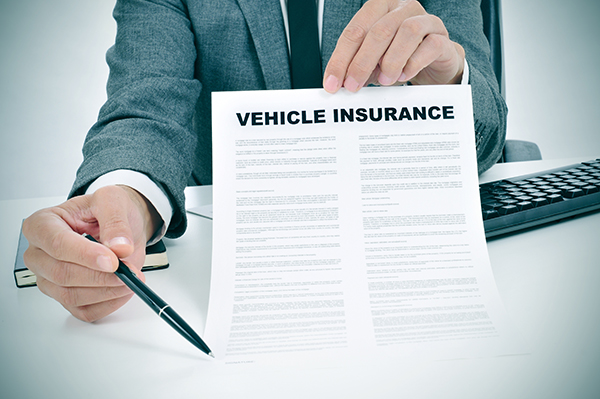For businesses with a large number of vehicles, having fleet insurance is important. However, completing the claims process can be tricky and can leave you with a lot of questions. By understanding common issues with fleet insurance and how to handle them, businesses can ensure they have the coverage they need in the event of an accident or damage.
1. Understand How the Claims Process Works
The claims process for fleet insurance begins when one of your insured cars is involved in an accident. You should notify your insurance company as soon as possible after an accident occurs. This may involve obtaining important documents such as police reports, photographs, eyewitness statements, and facts about the accident. It is important to understand the steps you need to take to file a claim so that you can avoid problems later on. Understanding your insurance and the paperwork required can help speed up the process.
2. Claims Processing Delays
Delays are one of the most common issues in the claims process. Many factors can cause these delays, such as missing paperwork or a backlog of insurance claims. Businesses should ensure that all necessary information and documents are provided promptly to avoid this problem. If you think your claim is taking longer than usual, it is best to stay in regular contact with your insurance agent. Proactive communication can help you understand the progress of your claim and resolve any issues early.
3. Insufficient Coverage
Another common problem with fleet insurance is insufficient coverage. Many businesses do not have as much coverage as they think they do, which can lead to disagreements over who should pay claims. To combat this, you should read your policy carefully and review your coverage needs regularly. Your coverage needs can change based on factors such as how the vehicle is used, the risks posed by the area, and the type of cargo being transported. If you feel that your current policy is not protecting you properly, you may need to change your coverage or discuss other options with your insurance agent.
4. Disputed Claims
Disputed claims occur when an insurance company fails to pay or pays a claim that the company considers too low. Disputes can arise from disagreements about the amount of damages, who is responsible, or even whether the claim is valid at all. A good way for companies to handle these disagreements is to carefully read the terms and conditions of their policies so that you understand their rights and obligations. Gathering additional evidence, such as repair estimates or expert opinions, can help you resolve the issue. If necessary, you can speak with an attorney about how to properly handle the dispute resolution process.
5. Documentation Issues
To file a claim for fleet insurance, you need the proper documentation. Claim denials or smaller payouts can occur if there is insufficient or correct paperwork. Documentation issues often arise when accident reports, unclear photos or incomplete witness statements are lost. To make these issues less of a problem, companies should implement a standard way to record accidents and injuries. This process can include using checklists to gather information in the field, training employees on how to properly record incidents, and keeping all claim-related documents in one place.
6. Understand What Your Policy Doesn’t Cover
Several things fleet insurance policies often don’t cover, which can catch policyholders off guard. Certain types of accidents or losses may not be covered under these exclusions, which can cause confusion during the claims process. Vandalism, vandalism, and drunk driving are common examples of things that aren’t covered. It’s important to read and fully understand your policy so that you don’t run into problems due to policy restrictions. If any of the terms are unclear, contact your insurance agent. Knowing what’s covered and what’s not can help you set realistic goals and avoid unpleasant surprises when filing a claim.
7. Lack of Communication with Insurers
To ensure a smooth claims process, customers and insurers need to be able to communicate clearly with each other. Misunderstandings, missed deadlines, and late payments can all result from poor communication. Businesses should appoint someone on their team to be the primary point of contact for all communications with the insurance company. This will allow everyone to communicate more clearly with each other. This person should be responsible for monitoring the progress of the case, answering questions, and ensuring that all necessary information is provided on time. Keeping your provider updated regularly will help maintain clarity throughout the process.
8. The Role of Adjusters
The insurance adjuster is very important in reviewing the case and deciding how much to pay. However, disputes can arise over how much damage or liability should be covered. Claims adjusters may have different views on what the policy terms mean, which can lead to disagreements on how to resolve the claim. To address this issue, businesses should ensure that they understand the responsibilities of reviewers and how they conduct reviews. If you disagree with the adjuster’s statement, it’s best to get a second opinion or appraisal from someone else. This extra perspective can go a long way toward reaching a fair settlement.
Conclusion
Businesses that operate a large number of vehicles need fleet insurance to protect them from a variety of risks. On the other hand, the claims process can be difficult to navigate. Businesses can ensure they’re protected by understanding common issues and developing solutions. Being proactive with your fleet insurance case can lead to better results and peace of mind, from keeping the right paperwork in place to communicating clearly with your insurance company. Businesses can handle complex fleet insurance cases and keep their operations safe if they know what to do and plan.
FAQs
1. What Common Things Are Not Covered by Fleet Insurance?
Some common situations that are not covered include damage caused by intentional acts, drunk driving, using the car for activities other than work, or certain types of natural disasters. Read your policy carefully to find out what it doesn’t cover.
2. How do I determine what services my fleet needs?
Finding the right coverage means considering the unique needs of a business, such as the types of vehicles it uses, the risks the area poses, and the value of the items it carries. Talking to an insurance agent can help you create a policy that meets your needs.
3. Is there a way I can save money on renters insurance?
Many insurance companies offer discounts on fleet insurance based on factors such as the number of vehicles, the driver’s safety record, the installation of safety features, and by bundling fleet insurance with other types of insurance. Discuss potential savings with your insurance company.
4. What can I do to improve the way I handle my business?
To improve the claims process, establish clear rules for documenting what happened at the scene of the accident, teach your staff the right way to do things, maintain open lines of communication with your insurance company, and review your policy regularly to ensure it provides adequate coverage.
5. How often should I review my fleet insurance contract?
You should review your fleet insurance policy once a year, or whenever there are major changes to your business (such as purchasing a new vehicle, changing how it’s used, or changing the type of cargo it carries). By reviewing your policy regularly, you can ensure it meets your changing needs.




